
As part of the College of Business’s celebration of Women’s History Month, Dean Beth Walker joined distinguished alumnae and business leaders for a panel discussion on the women’s roles in the workplace have – and have not – shifted, how progress has been achieved, what lessons they’ve learned from 2020, and how they see female leadership shaping the future of business.
Watch the Full Conversation
The panelists included Zubaida Bai, ’10, managing director of CARE Social Ventures and the founder of maternal-health company ayzh, Lisa M. Hackard, ’97, an audit partner at KPMG, Pam Jeffords, a senior partner leading the Diversity, Equity and Inclusion Practice with Sapient Insights Group and Cynthia Patterson, ’06, a regional strategic veterinarian at Zoetis, ’06.
Q&A Text and Video Excerpts
What did you learn in 2020 that you’re going to take away to help better prepare you and your organizations for the future?
Lisa Hackard
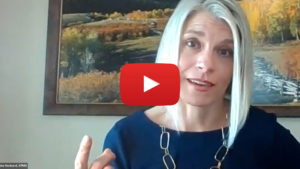
“What I really think will happen is that the essential leadership skills are going to shift a lot more to include empathy, patience, listening and a more adaptive coaching styles.”
Zubaida Bai
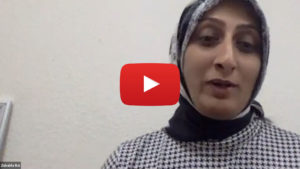
“We as women leaders need to step up and acknowledge that if you’re working eight to ten hours of productive professional work we’re also doing additional eight hours of unpaid work [leading to burnout and greater numbers of women leaving the workforce].”
Cynthia Patterson
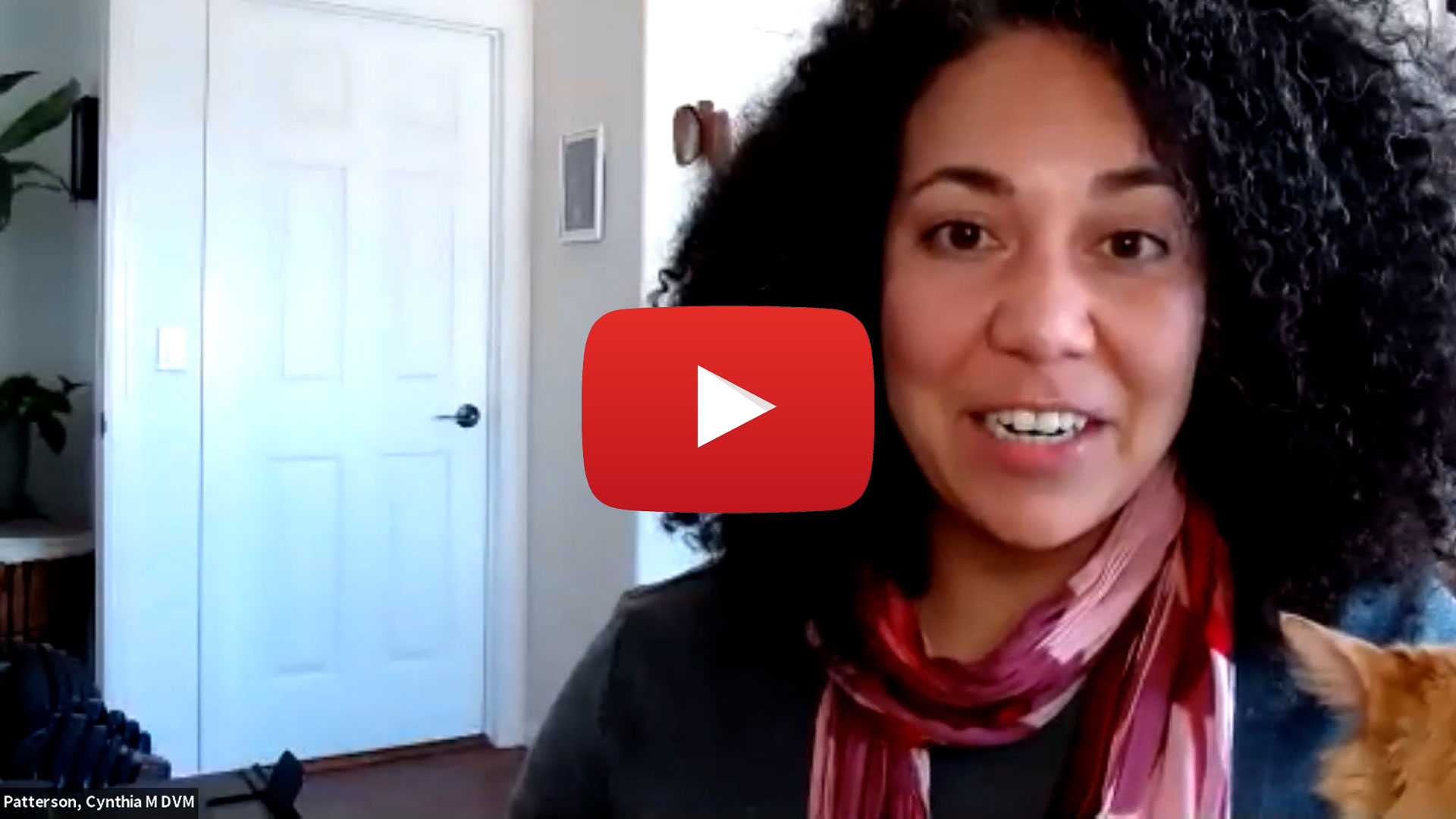
“Just being able to say, every once in a while, it’s okay to not be okay, it’s okay to say, “Gosh, this blurring is too much and I don’t know if at nine in the morning I’m working or if I’m eating breakfast or you know what’s going on anymore.”
Pam Jeffords
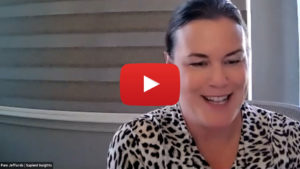
“I learned that I actually don’t listen well and so I learned how to listen better … I don’t sit in problems very well. I consider myself a problem solver, and sometimes that’s not the best thing… some problems take longer than 10 minutes to set in.”
As an entrepreneur, what has helped you be successful and what are the barriers?
Zubaida Bai

“I realized that patriarchy wasn’t just with men, it was also with women, right? And so that I think for me that’s the biggest challenge that I faced as an entrepreneur is fighting that patriarchy, bringing woman’s health, bringing gender-based issues to the table for investment. … [The patriarchy] exists, just don’t let that affect you negatively and today there is support for women.”
Pam Jeffords
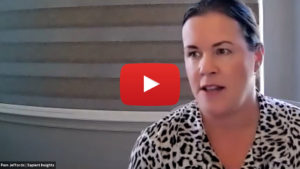
“For me personally I’ve learned, what am I good at and the focus, and also how to not do things for free … That’s something that i think women tend to do is we say, ‘Well, let me just get in the door by doing something for free,’ and I found that people don’t value anything for free, period. So, they’ll value you more if you ask for what you’re worth and know what you’re worth.”
What has helped pave the way for women to become a larger force in accounting and other business related fields?
Cynthia Patterson
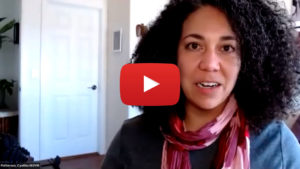
“How do you stand in front of an HR team and say, ‘Hey, you’re not paying people well enough. Not just me, but all of the people working in the same role in the company are not being paid enough.’ That’s something where I got brave one day – again the beauty of having gone through an MBA program sometimes you take bold steps … to stand up to leaders in my company and say, ‘Hey, this this isn’t working. You know, I appreciate what you’re paying me. However, I’m worth way more and so is everyone else,’ and it did lead to a pretty significant bump in salary for all of the veterinarians that work in the field.”
Lisa Hackard
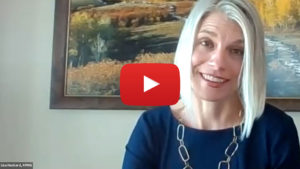
“I think that for a lot of our women there’s this perception of perfection at the top … and then the misperception is that those coming up along the way think I can never be like that because I’m not perfect, right? So, through sharing stories I think we help everybody understand that none of us are [perfect], right? We make mistakes, we learn, we try again, we make more mistakes, we try again, we try better and it’s a journey.”
With less than 3 percent of venture funding going to women-led startups, how can female entrepreneurs succeed?
Pam Jeffords

“Corporate leaders direct funding … They’re directing where their foundation dollars are going, where their investment dollars are going, what does their supply chain look like. … So, I think getting more women and people of color in leadership adds to where the dollars are going for the startup community and who’s getting the funding.”
“There are also women impact funds now, Golden Seeds, Jump Fund just to name two, that are specifically allowing women to put our dollars into women-owned and women-led companies. … And this is not about putting [your money] into a non-profit, meaning, expect your return.”
Zubaida Bai

“Somehow the society and the women themselves tend to believe that they can be owners of small and growing businesses and not VC-style [national or global] businesses. So, the number of women who pitch to VC businesses are very far few in between … I think women are holding leadership and holding those [small and growing] companies where they are and they’re doing amazingly well … and those women need to be taught to think big, think global in scale.”
How do you respond to the challenge of women feeling like they need to act more like men to succeed?
Lisa Hackard

“What I see as so inspiring in this generation that’s coming up out of the universities right now is such a solid grounding in personal values. right? And I see it in so many folks fresh out of university, they know who they are, they know what’s okay with them, they know what’s not okay with them, and they’re not shy about saying, ‘You know what? That’s not for me.’ And you think that’s exactly what we need because if you’re not grounded in who you are and what’s important to you you can get blown in the wind and you can get caught up in those past practices that lead us to places we don’t intend to go.”
Pam Jeffords

“What we were told to do [throughout our careers] is make them forget that you’re a woman. … People who tell me today, ‘Well Pam, can’t we just wait this out? Isn’t this next generation going to solve all this?’ And the answer is absolutely not. … So, stop the storytelling about what you did to act more like a man. Start being not a trailblazer, but be a leader. Help people, guide them to be their authentic selves.”
How can we assist young women in business with maintaining that work-life balance?
Zubaida Bai

“I feel like this is such a gendered question, I don’t think any man has ever asked, ‘How do you balance it?’ It’s like asking, ‘How do you love your two kids equally?’ Right? Like come on, right? I think one thing we as women have to learn is ask for help and second we have to stop asking women, ‘How do you do it?’ Yeah, there is no secret sauce, there’s no secret formula. Each of us have a life, we are going to live it, we have to live it. … You have to believe in [women’s] ability and capability to do what they’ve committed to do no matter how big it is.”
Lisa Hackard

“Do what you’ve committed to do and then be clear about what you need to be successful, right? Certainly it’s investment of time in your professional growth but also in your personal relationships, whether that’s with a spouse, a partner, children, friendships and with yourself, right? Taking good care of yourself. … I always encourage our women to do what is right for you at this moment and be clear that that’s your number one priority and then be there fully, right? And then turn your attention to the next thing and get great about time management, but do what you committed to do. … And ask for help we all need help all of us do because nobody can do this by themselves.”
Cynthia Patterson
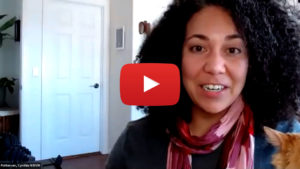
“I think the term work life balance is kind of an awful phrase because I know I have a very … poor work-life balance, but that was one of the gifts that COVID gave me was time to be present, time to be here and to say, ‘Hey, I matter as much as everyone else that I care so much about, and all the causes I care so much about, and the things I do. I matter as much as those things and if I don’t start investing in myself even just a tiny bit I’m not going to be able to care for anyone, right?’ … So, for me it was trying to find that thing that really sparks joy and then diving into it, carving out specific time, and still getting enough sleep and still drinking enough water and doing all those things.”

“I like to think of a work-life integration because I hate the word balance, because it’s a tough one, it makes them feel like they’re contradictory and I would say it’s about looking at it in a longer term [way] than today or this week or this month. … So, don’t take a job, or not take a job, or not take an assignment because you think in a certain amount of time you’re going to want to do something else. It is okay to change your mind later, it is okay to take a job that you’re not going to want in three years. It is okay to take a job that you’re not going to want in a year. … So make your decisions, zig and zag, and then really make sure again that you … surround yourself with people that are going to push you and guide you and and yes, mentors and sponsors are great, but that person next to you saying, ‘Pam, you should go for that job,’ is going to be more valuable to your success than any mentor or sponsor could be.”